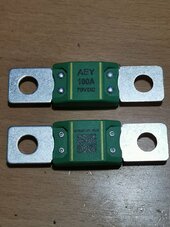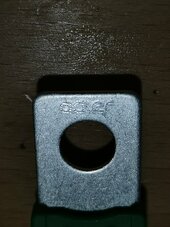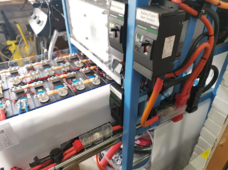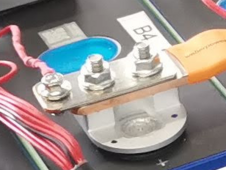Ron-ski
Solar Enthusiast
I'm updating my Victron install, and wanted to use 58v or 70v Mega fuses (I have T Class on the battery rack), which are very hard to find or rather expensive for Victron ones, when I came across some fuses on CPC Farnell, a company I've used from time to time over the years. The good thing is anybody can buy from them, and postage was free for the 7 fuses I purchased.
You may well need to filter the results to 70v on the left, as the link doesn't seem to quite work as expected.
Here's a direct link to the 50a version.
There isn't a data sheet, or at least I couldn't find one. The fuses are marked Adler which appears to be a German fuse manufacture.
Data sheet is on page 42 of the catalogue here. The fuses range from 40A to 500A, all rated at 70V DC with a breaking capacity of 2.5kA
The QR code scans as 10.AEY.3100900.00,AD230331D080100355
It'd be interesting to know peoples thoughts on them.


You may well need to filter the results to 70v on the left, as the link doesn't seem to quite work as expected.
Here's a direct link to the 50a version.
Data sheet is on page 42 of the catalogue here. The fuses range from 40A to 500A, all rated at 70V DC with a breaking capacity of 2.5kA
The QR code scans as 10.AEY.3100900.00,AD230331D080100355
It'd be interesting to know peoples thoughts on them.






